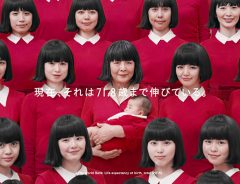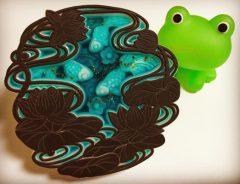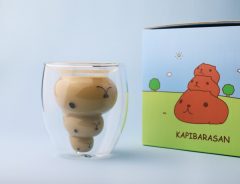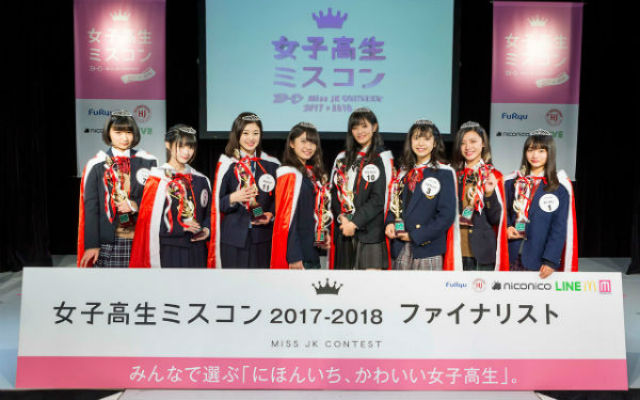- Source:
- PR Times / <女子高生ラボ★47>紹介動画 / PR Times
- Tags:
- Beauty Pageants / Contests / Cute / Girls / High School Girls / Japan / Miss Contest / Prefectures
Related Article
-

Maker of Pocky Uses 72 Actresses Living Out a Woman’s Life 1 Second at a Time in Beautiful Commercial
-

Talented Japanese Artist Turns Ordinary Erasers Into Intricately Carved Stamps
-

These adorable bubbly Capybara glasses are the chillest tableware for the summer
-

Have the comfiest bite taken out of your neck with this bloody shark pillow
-

Japanese Rock Balancing Artist’s Masterpieces Appear To Defy The Laws Of Gravity
-

Cup Noodle Re-imagines Cast Of One Piece As High School Students In Beautifully Animated Short



The now annual “High School Girl Miss Contest" (Joshi Kousei Miss Contest) by Model Press, a voting based competition to decide Japan's "cutest high school girl", is now gearing up for its 2018 edition. A pool of semi-finalists, representing different prefectures from the major regions of Japan (Hokkaido, Tohoku, Chubu, Chugoku, Shikoku, Kyuushuu, Okinawa, Kansai, and Kanto), were selected via voting on social media platforms. In the past, winners have been signed to talent agencies and promoted on television and in magazines.
But this year marked the debut of the the event's "sister" contest, the "JC Miss Contest", which was held to determine the "cutest" junior high school student in the country. 3,200 contestants gathered from April, with the eventual winner "Saki" (Saki Arikawa) taking home the contest's main "Grand Prix" award and "Miruku" (Miku Ichinose) and "Juriri" (Juri Nishikawa) winning runner-up Grand Prix and a special Model Press award, respectively, on December 9th. Saki was awarded a special contract with a major entertainment label, as well as "PR ambassadorship" duties and a magazine appearance.
Source: PR Times
Source: PR Times
As for the high schoolgirl contest, the prefectural representatives, which were trimmed from an initial pool of 330 contestants, have now been voted on via purikura photo sticker booths to determine the final contestants in an event held on March 27, 2018. While both the high school student and junior high school student contests are primarily based on aesthetics, the finalists are judged on individual performances and special talents, such as singing and dancing or English conversation ability. Here are the finalists for the High School Girl Miss Contest 2017-2018 edition.
Tohoku Area Representative: Hikaru
Source: PR Times
Chugoku/Shikoku Area Representative: Nanami
Source: PR Times
Kanto Area Representative: Chihiro
Source: PR Times
Kansai Area Representative: Zawako
Source: PR Times
Chugoku/Shikoku Area Representative: Nanachara
Source: PR Times
Chubu Area Representative: Honopipi
Source: PR Times
Kyushuu/Okinawa Area Representative: Rio-chon
Source: PR Times
Kyushuu/Okinawa Area Representative: Meimei
Source: PR Times
While the high school version of the contest has become an annual event and platform for young girls to break into the modeling and idol industry, the debut of a junior high school version has raised some voices of criticism on Japanese social media. Two chief complaints seem to be that it may be exploiting girls for the sake of appealing to "lolicon" (shortened for "lolita complex", a fascination with and/or attraction to young girls), and also the concern over exposing young and possibly naive girls to the particularly strict and cut-throat aspects of the idol and celebrity industry in Japan.
Source: PR Times